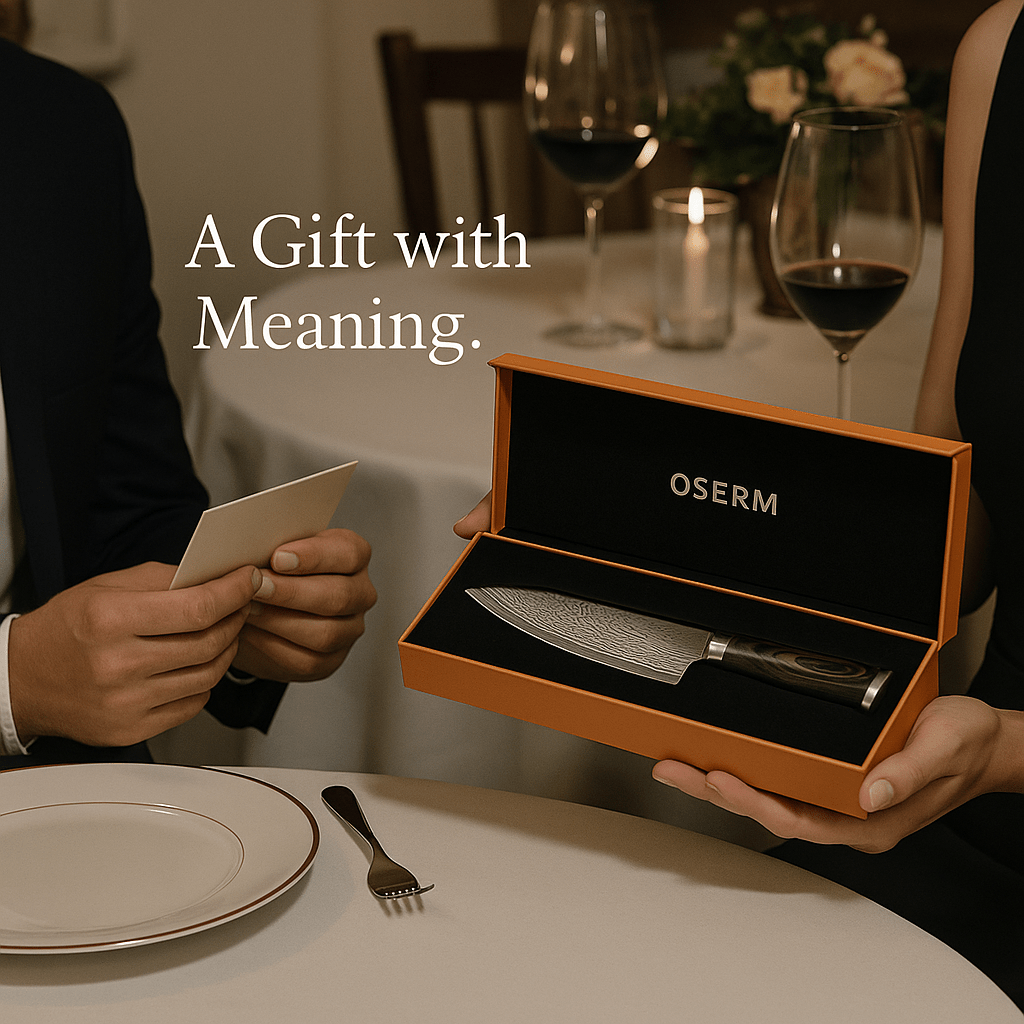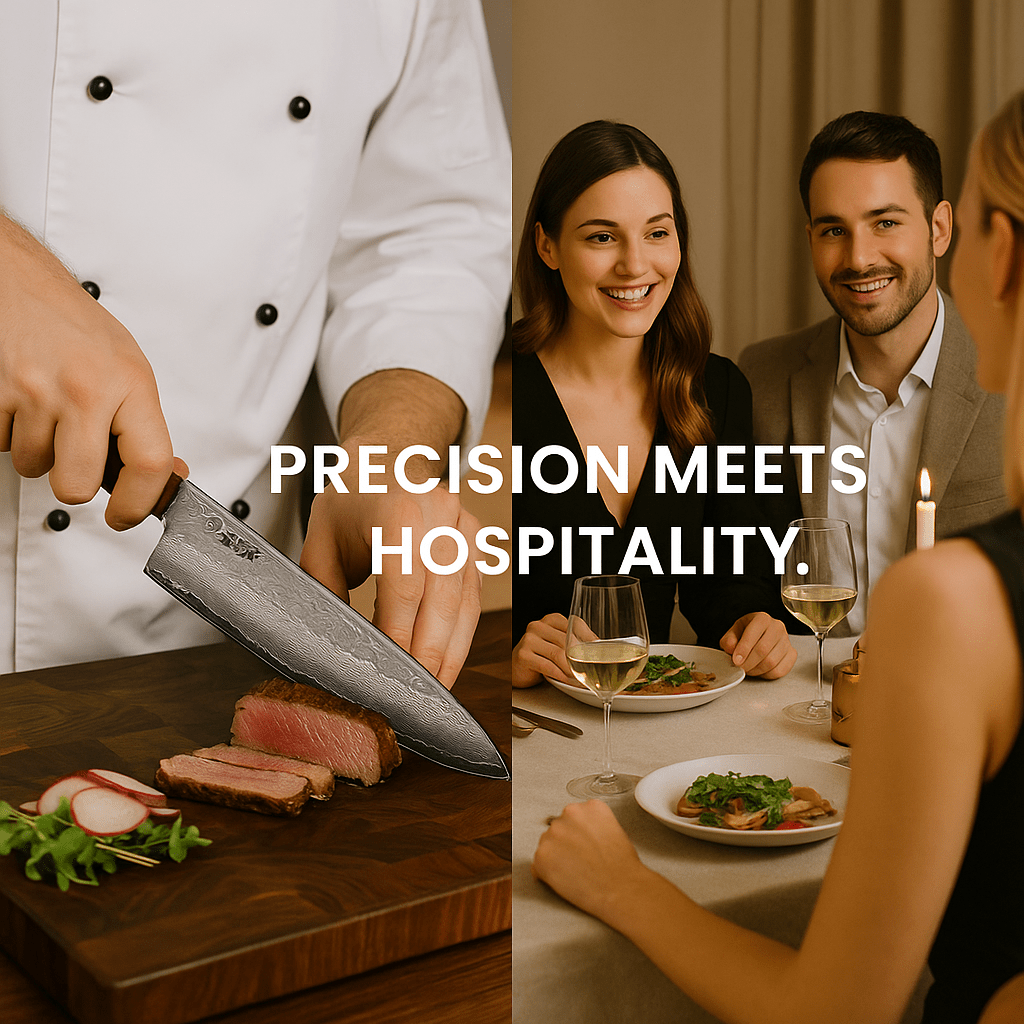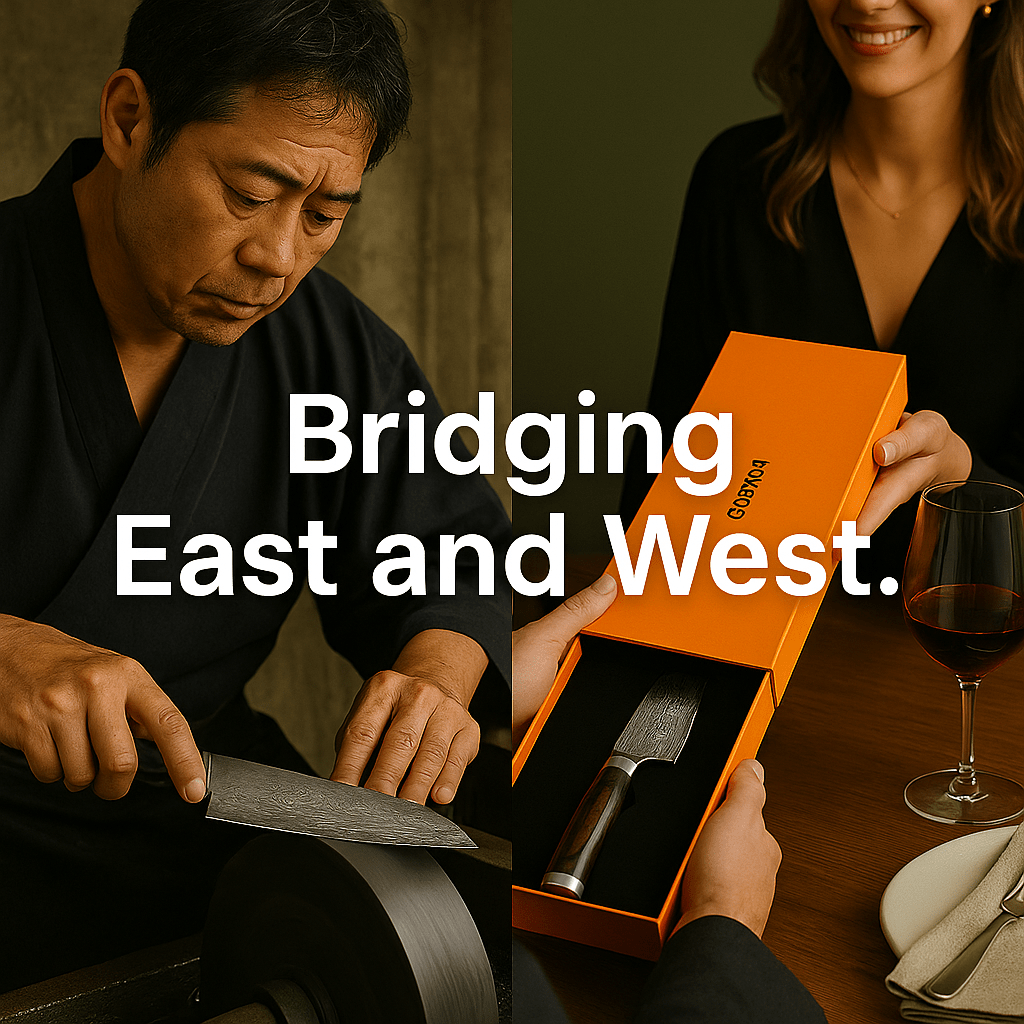
Are Knives Allowed as Gifts in Western Culture? – The Meaning Behind the Blade
Throughout history, knives have carried both symbolic and practical value — tools of survival, craftsmanship, and connection. But when it comes to gifting, many people wonder: Is it appropriate to give a knife as a gift? In Western culture, the answer isn’t as simple as yes or no. While some still see knives as “cutting ties,” others recognize them as powerful symbols of trust, craftsmanship, and lasting partnership — especially when the knife in question is a finely crafted OSERM Damascus blade.
1. The Origins of the “Superstition”
The old belief that gifting a knife might “sever” a friendship or relationship traces back to medieval Europe. Knives were seen as tools — or weapons — of independence and conflict. The act of giving one, without context, symbolized the cutting of bonds. However, as cultures evolved and craftsmanship gained prestige, the meaning transformed from danger to dedication.
Today, in many Western countries, this superstition is more tradition than rule. In fact, high-end knives have become increasingly popular as thoughtful, elegant, and even symbolic gifts of precision and trust.
2. Modern Etiquette – Turning a Blade into a Blessing
In contemporary etiquette, the “curse” of giving a knife is easily lifted by a simple, meaningful gesture — the token coin tradition. The recipient gives the giver a small coin (even just a penny), turning the transaction into a “purchase” rather than a pure gift. This transforms the knife into a symbol of goodwill rather than separation.
Many OSERM customers include this gesture when gifting knives to friends or business partners. A note that says, “Please return this coin, so our friendship stays sharp” adds a charming cultural touch — one that reflects both awareness and sincerity.
3. The Deeper Meaning of Gifting a Knife
When given thoughtfully, a knife represents far more than utility — it signifies precision, strength, and longevity. The blade becomes a metaphor for clarity of mind and sharpness in purpose. In business, it’s a gesture of respect; in friendship, a token of trust; and in family, a sign of care and craftsmanship.
- For Business: A premium Damascus knife symbolizes excellence and precision — a fitting metaphor for a partnership built on skill and reliability.
- For Family: Gifting a high-quality kitchen knife communicates care and the wish for many shared meals to come.
- For Friends or Newlyweds: A beautiful knife gift set can represent a strong foundation and the readiness to “build and create together.”
4. How Western Culture Has Evolved
In today’s design-conscious, culinary-driven culture, fine knives have transcended old superstitions. From Michelin-starred chefs to newlyweds and professionals, more people are embracing the knife as an expression of art and practicality.
Luxury brands like OSERM have helped reframe knives as modern heirlooms — symbols of craftsmanship and connection. Presented in the signature orange OSERM gift box, the gesture becomes elegant, meaningful, and memorable.
5. Presentation Matters
How you give a knife determines how it’s received. A blade handed casually may feel impersonal; a knife presented with story, care, and context feels thoughtful and respectful. Always include a note explaining the craftsmanship and tradition — perhaps even mention the Japanese philosophy of “monozukuri,” or the spirit of dedication behind creation.
OSERM’s packaging reinforces this message beautifully. The orange gift box, black velvet interior, and magnetic closure speak the language of modern appreciation — understated elegance that fits both Western and Eastern values.
6. When a Knife Becomes More Than a Gift
Many OSERM customers share that when they gift one of our knives, the moment lingers. The recipient doesn’t just receive a tool; they receive a story — one forged from steel, layered with meaning, and presented with pride. It’s a lasting reminder that some gifts, though sharp, can connect people in profound ways.
In Western culture, a knife gifted with thoughtfulness becomes not a symbol of severance but of respect — the perfect union of art, function, and sentiment.
7. Tips for Gifting a Knife in Western Context
- Include a small coin and note the tradition (“Return this coin so our friendship stays sharp”).
- Pair the knife with a story — a brief explanation of its craftsmanship or symbolism.
- Present it in a gift box, never bare-handed — respect is as much about the gesture as the object.
- Choose a Damascus or handcrafted knife for meaning and artistry.
- Always ensure the recipient appreciates fine craftsmanship — it deepens the emotional connection.
8. The OSERM Touch
At OSERM, we believe every knife carries meaning beyond its blade. Forged from VG-10 Damascus steel and layered 67 times, our knives are the result of meticulous artistry — each one telling a story of mastery, beauty, and purpose. The bold orange box is more than packaging; it’s our signature of confidence, designed to make your gesture unforgettable.
Conclusion
So, are knives allowed as gifts in Western culture? Absolutely — when given with care, intention, and understanding. A premium OSERM Damascus knife is not just an object; it’s an expression of excellence, a message of respect, and a bridge between cultures and hearts. It’s proof that sometimes, the sharpest gifts are also the most meaningful.
Weekly Deal 🔥
Celebrate meaningful connections with OSERM’s Damascus Gift Collection — premium VG-10 steel knives presented in our signature orange box, perfect for weddings, partnerships, and special occasions.
Explore OSERM Gift Collection →
You Might Also Like
- A Gift That Lasts a Lifetime – Why Knives Make Meaningful Presents
- Why a Premium Knife Makes the Perfect Business Gift
- The Art of Gifting Precision – OSERM’s Philosophy of Craftsmanship
Tags: OSERM Damascus knives, knife gifting, Western culture, gift etiquette, VG-10 steel, orange gift box, craftsmanship, luxury kitchen gifts, OSERM tradition






